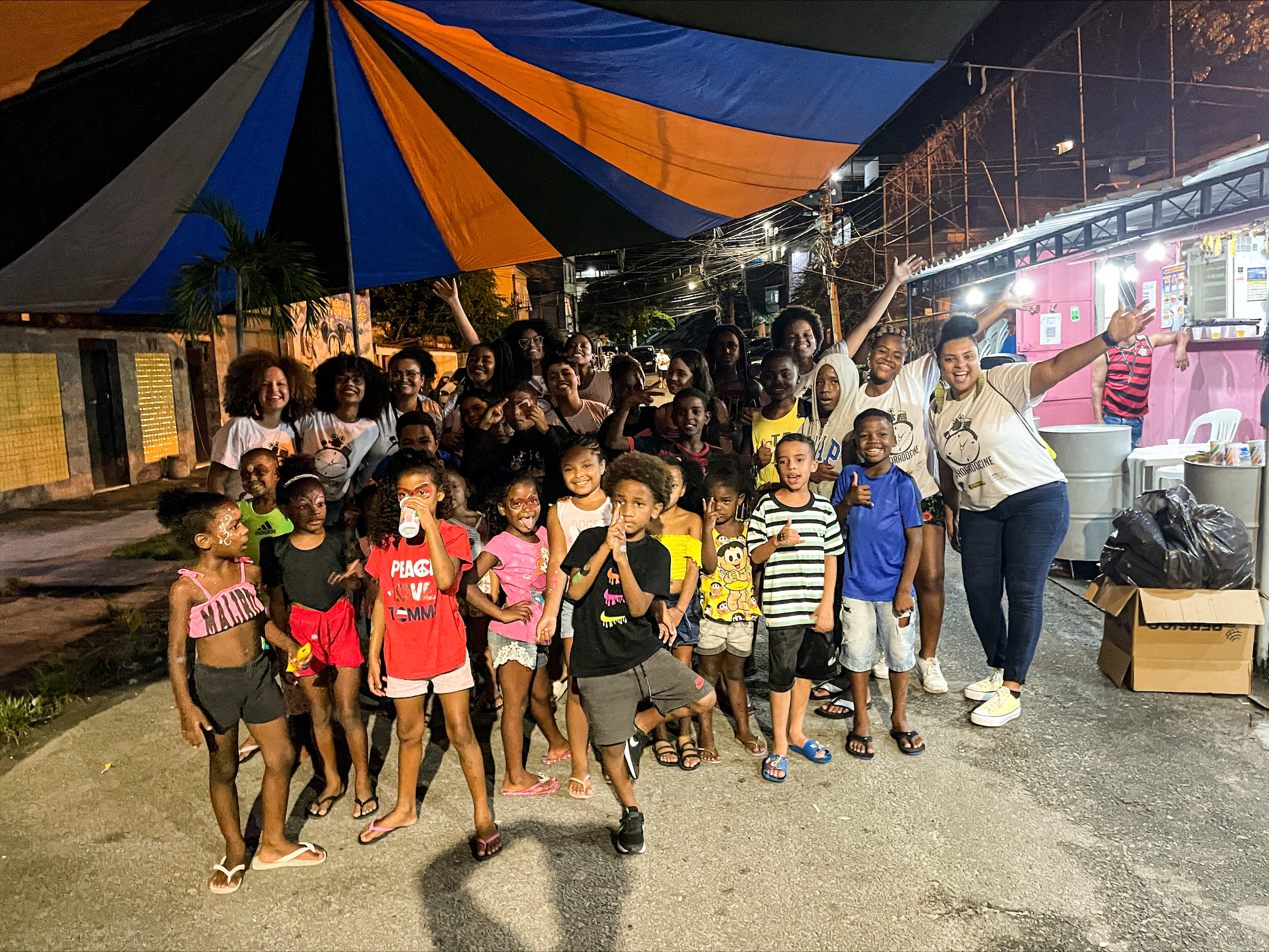
Clique aqui para Português
The third and latest edition of the Film Time project (A Hora do Cine) was held on Saturday, January 28, in Cavalcanti in Rio de Janeiro’s North Zone. The event was organized through a partnership between community groups Primavera Collective and Agbara Collective, with assistance from Agenda Rio 2030—a fund by Casa Fluminense to support inter-sectoral and intersectional initiatives that promote economic, racial, gender, and climate justice in Greater Rio.
The Film Time project is a film club event developed by residents in Cavalcanti—especially from the favela Morro da Primavera—and works to promote culture and education among children and teens in the region. Its first edition was in November 2022 at the top of the favela, and the last edition took place on Tumucumaque Street. The project aims to show films with themes of racial and gender justice. At the last event, the films Indigenous People – Brazil’s Roots and Dúdú and the Skin-colored Pencil were shown.
At the latest event, on January 28, some 30 children from different parts of the favela were in attendance. Beyond films and snacks, the little ones also had fun with music, face painting, and drawing. Between films, volunteers from the Primavera and Agbara collectives gave short explanatory talks about the importance of promoting debates on race, especially among youth in Black-majority neighborhoods.
There are no movie theaters in Cavalcanti—as is the case in most parts of Rio de Janeiro’s North and West Zones. Residents have to travel to neighboring areas such as Madureira or Cachambi to enjoy a movie screen. Besides the distance, the cost of the ticket, transport, and food can make the experience unfeasible. Beyond lack of access to theaters that show blockbusters, when it comes to children’s films covering social debates, the situation is much worse. The only options involve traveling to cultural centers and movie theaters in Rio’s South Zone and Centro. Because of this, events like Film Time are very important in territories that are culturally neglected by the state.
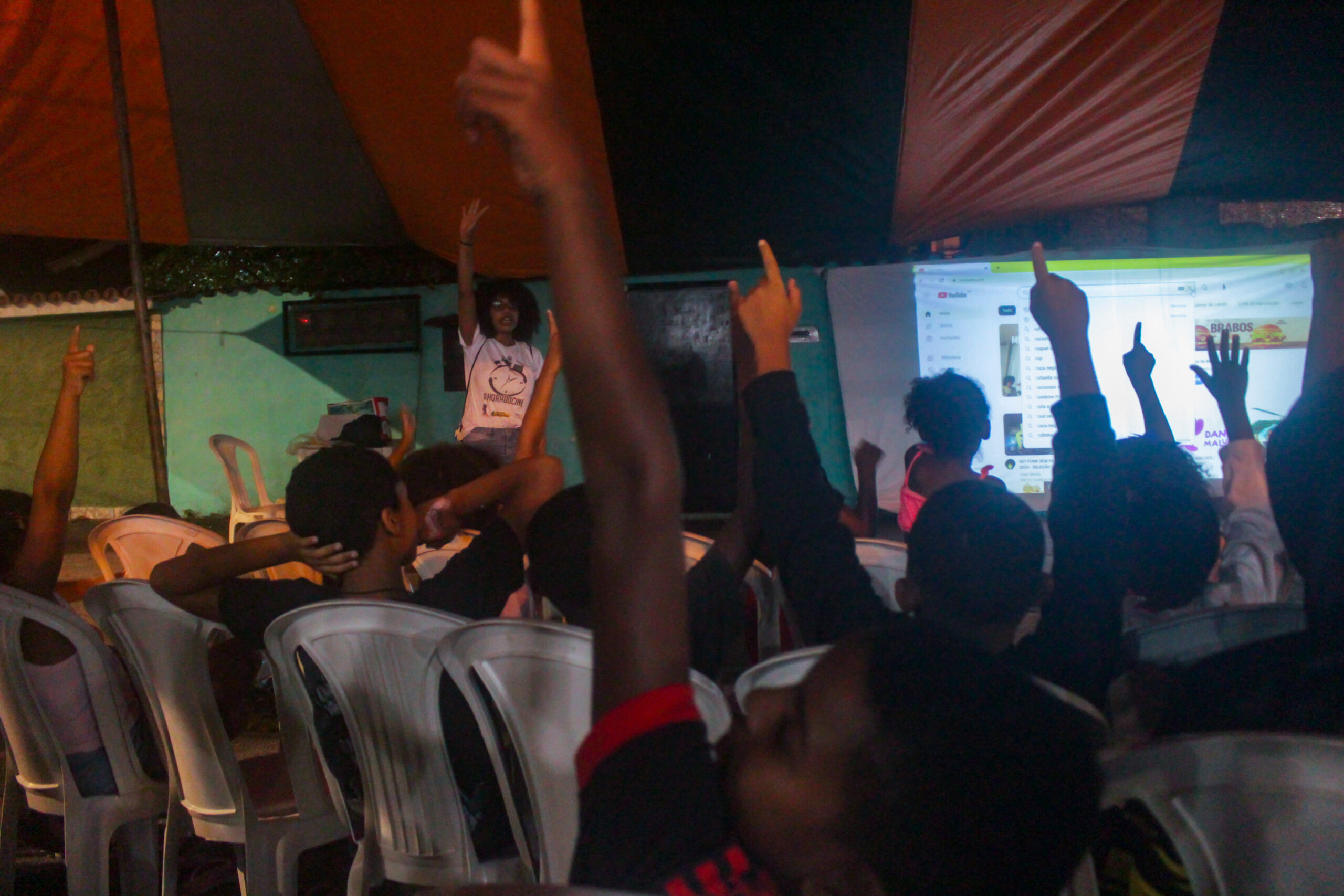
Interviewed for this report, Film Time organizers shared the project’s importance in the territory for reflecting on Black representation and shifting the experience of favelas to territories where culture and art are produced and consumed. RioOnWatch heard from Film Time organizers Suellen Souza, 25, co-founder of the Primavera Collective, elementary school teacher and pedagogy student at the State University of Rio de Janeiro (UERJ); Juliana Andrade, 22, member of the Agbara Collective and law student at UERJ; and Matheus Fernando, 23, warehouse worker and member of the Primavera Collective.
“Today’s session was special for me because it was in the place where I was born and have lived all my life. I am 25 and it was here that the Film Time project was thought up, to be itinerant and in an open space. It’s always been our intention for the project to take place in streets and public squares, to fill these spaces with culture, art, and education to promote racial justice.” — Suellen Souza
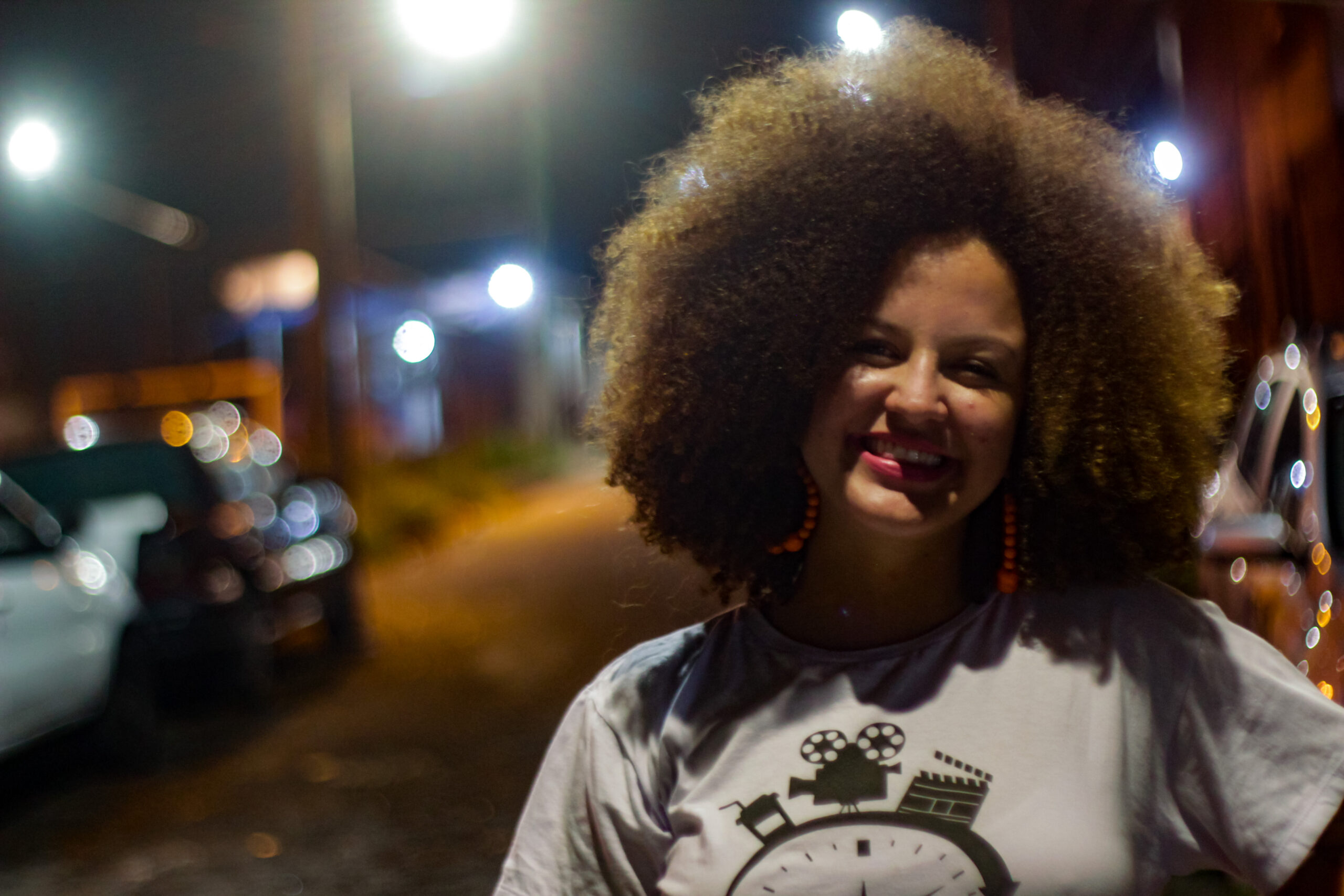
“We actually thought of a project that spoke about art and culture here in Cavalcanti, which is majority Black, so speaking of art and culture could not be separate from the issue of race… We understand it is important to subvert this hegemonically propagated logic that favelas only produce bad things. We are here to prove that we have produced many other things, including knowledge.” — Juliana Andrade.
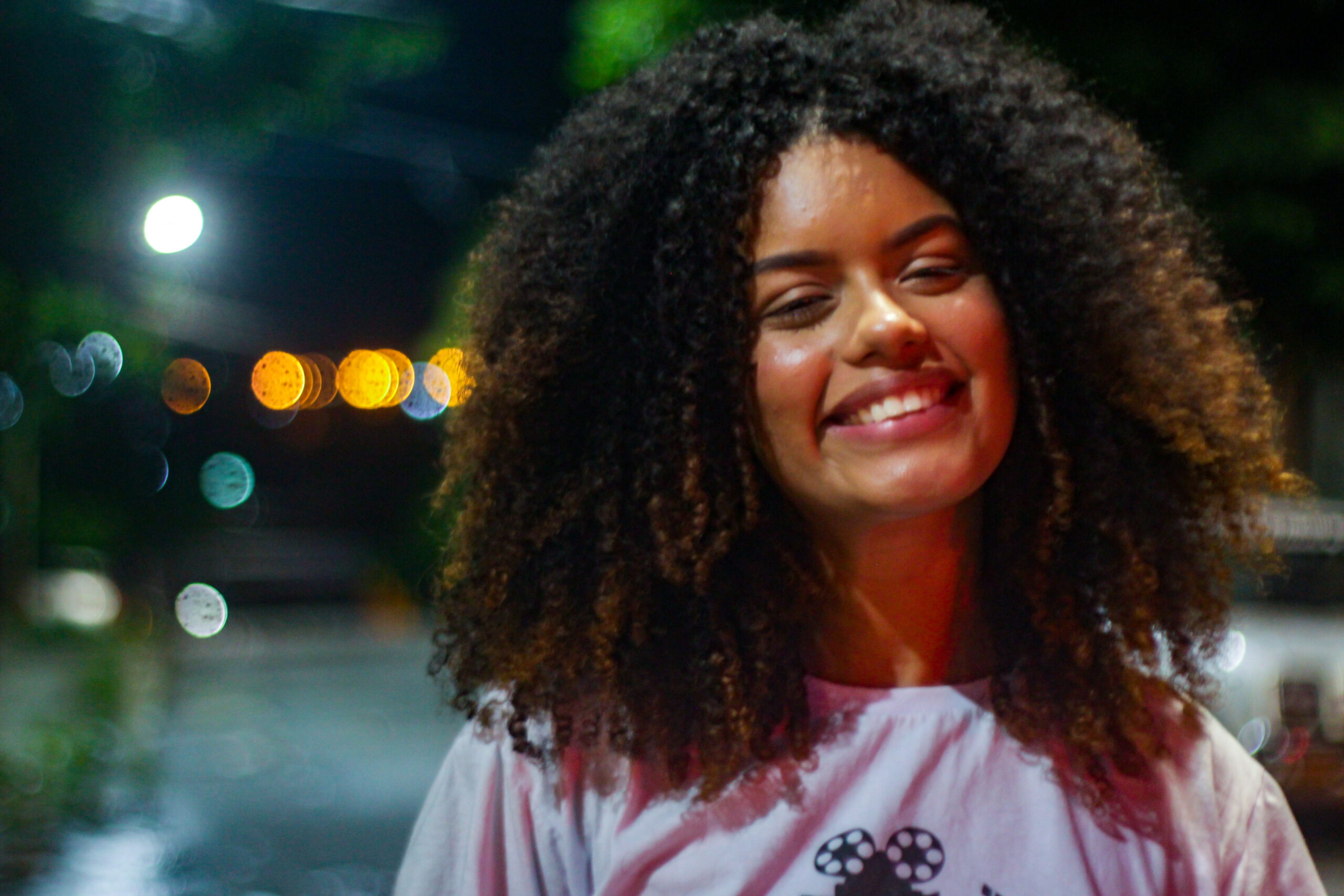
“Films are scarce for us adults too. I am not at university, so I pay a full-priced ticket. The student ticket is already expensive, let alone the full-priced one! Let’s say you go as a family, a dad or mom plus two kids. You can’t take any less than R$150 (US$ 30) with you. With food, transport, and movie tickets, it really adds up. When we bring the movie theater to our neighborhood, our favela, we end up affecting the movie industry itself, that came up with this notion that we have to go to a theater inside a mall and consume from the food court and shops, which costs a lot of money. [When we respond to this situation by] bringing in a projector and showing the film on a wall, we create a movie theater for a lot of children and it’s all free!” — Matheus Fernando
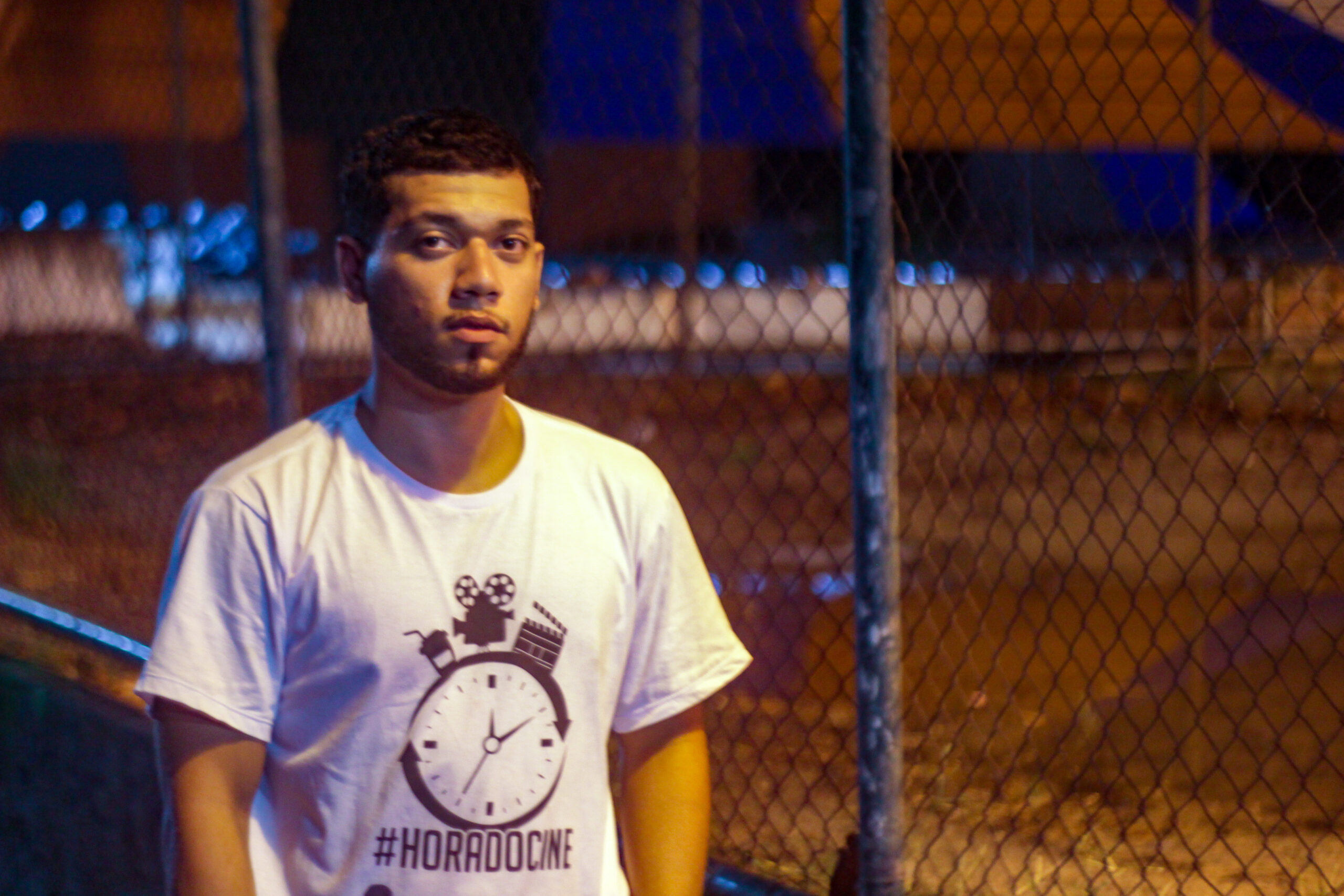
The State fails in many aspects for making itself present only through security forces, which in fact have already disrupted Film Time’s cultural and artistic activities. On Saturday, January 28, 2023, when this specific event took place, while the area was being set up for the film screening, a caveirão (armored Military Police truck) entered the favela firing shots.
“In the middle of the rain, we were also faced with a tank coming into our community as we were setting up the screen. We took off running because it was literally raining bullets. We had to duck.” — Suellen Souza
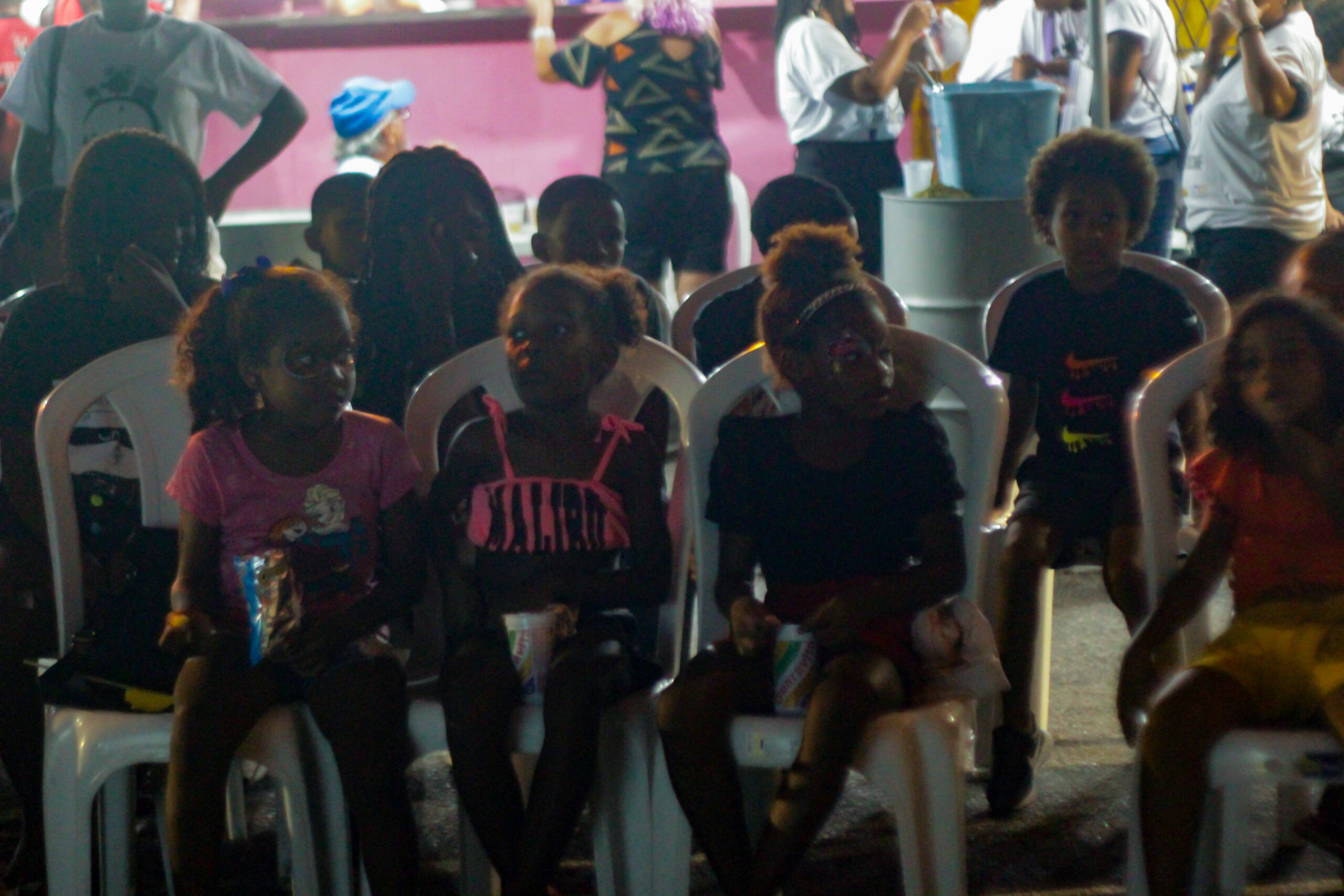
Shots fired by the State are not uncommon in the region. In August 2022, three days after an event by the Primavera and Agbara collectives at the top of the Primavera favela, the police came in and killed a person. During the Christmas edition of Film Time, an armored truck was positioned at the entrance to the favela, while inside children played and watched films and took photos with Santa Claus.
“In general, we only see the State present when it’s to start a war and kill. Today, for example, at Film Time’s closing activity, the shots fired came from a tank that arrived on the street corner and simply started shooting. The whole volunteer team and everyone present had to hide. It’s only in these moments that we see the State.” — Juliana Andrade
Primavera and Agbara Collectives: Culture by Residents for Residents
The Primavera Collective started from a need presented in the pandemic, where favelas were the most affected areas and did not receive the required attention from public authorities. In this context, collections and donations of food baskets and hygiene kits were organized. Following this, other movements were started in education and culture. The Primavera Collective is formed of people who live in favelas in the Cavalcanti region.
“When we get together and form a collective, it is kind of stopping this abandonment we feel. I am not alone in this world that I want to change… We do something different, we set up a movie for the children, we deliver a few food baskets. The resident then thinks ‘yeah, I’m not so alone.’” — Matheus Fernando
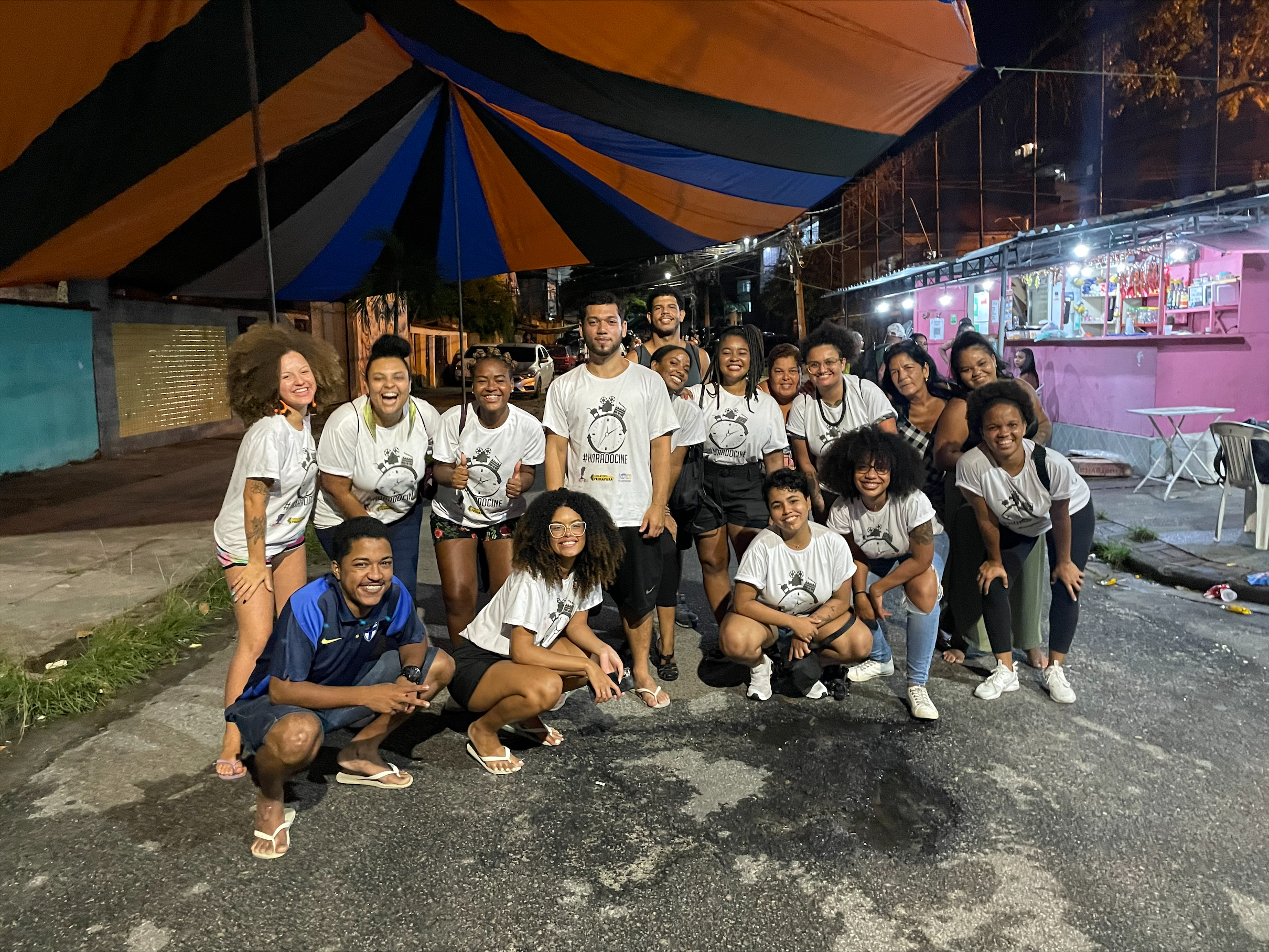
The Agbara Collective is formed of Black women and promotes activities that positively impact Black communities. With a national presence, focused on Rio de Janeiro, the Agbara Collective came together with the Primavera Collective for activities in and around Cavalcanti.
“The Agbara Collective acts where we see it’s strategic to act in support of the Black population as a whole.” — Juliana Andrade
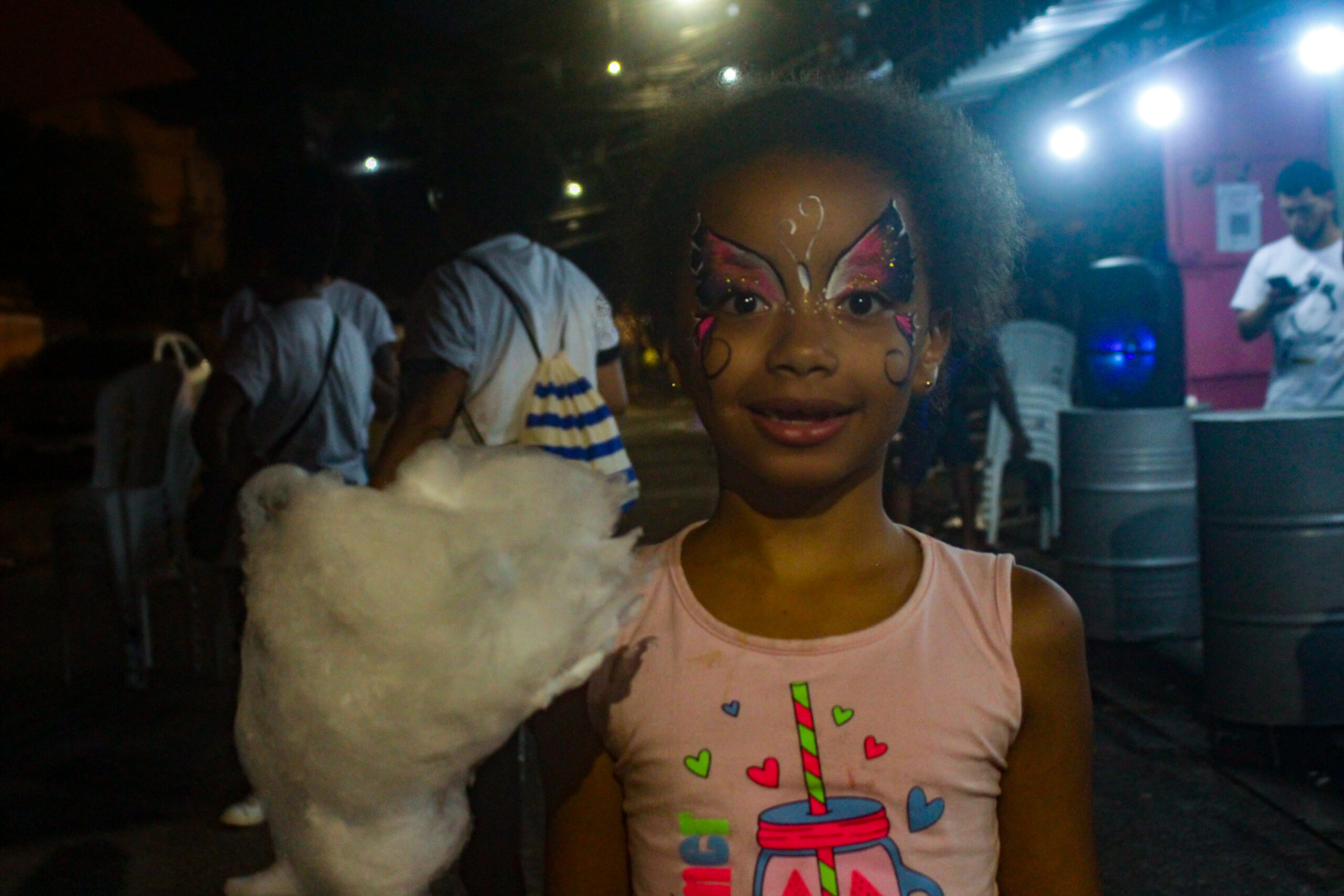
“I really like [Film Time], especially because there’s nothing else like it here. Here we have nothing… I was born and raised here and have lived here for 30 years.” — Thaiane Maria, face painting volunteer
In Cavalcanti and the Morro da Primavera favela, residents are key to making social projects happen. The Primavera Collective, as in other favela collectives, follows the “by us for us“ logic in its activities. They help construct the event, at the time of the event, during the organization, and by offering structural support. Whether at the top of the favela or on Rua Tumucumaque, there is always support from residents. For the Saturday, January 28 event, resident Fabiane Martinelli, better known as Dona Fabiane, offered the chairs from her food trailer for the film screening on the street. Other residents worked as volunteers at the event, such as Thaiane Maria, 30, who offered face painting, and Lorhany Miguel, 29, who made cotton candy after the showing. Miguel, as well as a volunteer, is mom to Jordan Oliveira, age six, who always attends the Primavera Collective’s activities.
“I find it really fun, because I love this party. It is very exciting, there is drawing, there is everything! This is life.” — Jordan Oliveira, 6
According to the residents and moms in the community, such as Miguel, Dona Fabiane, and Maria, Film Time is much more than a project that shows films in favelas. In seeing new insights about themselves, it constructs future possibilities and new subjectivities for the children who, in general, are denied their right to self-esteem.
“I believe this project arrived in the community at an excellent time. We see that many children do not know about representation, as portrayed in a show or a film. I have this in me. I always try to show my six-year-old son Jordan what representation is, what it is to watch a show that represents your origin and life perspective.” — Lorhany Miguel
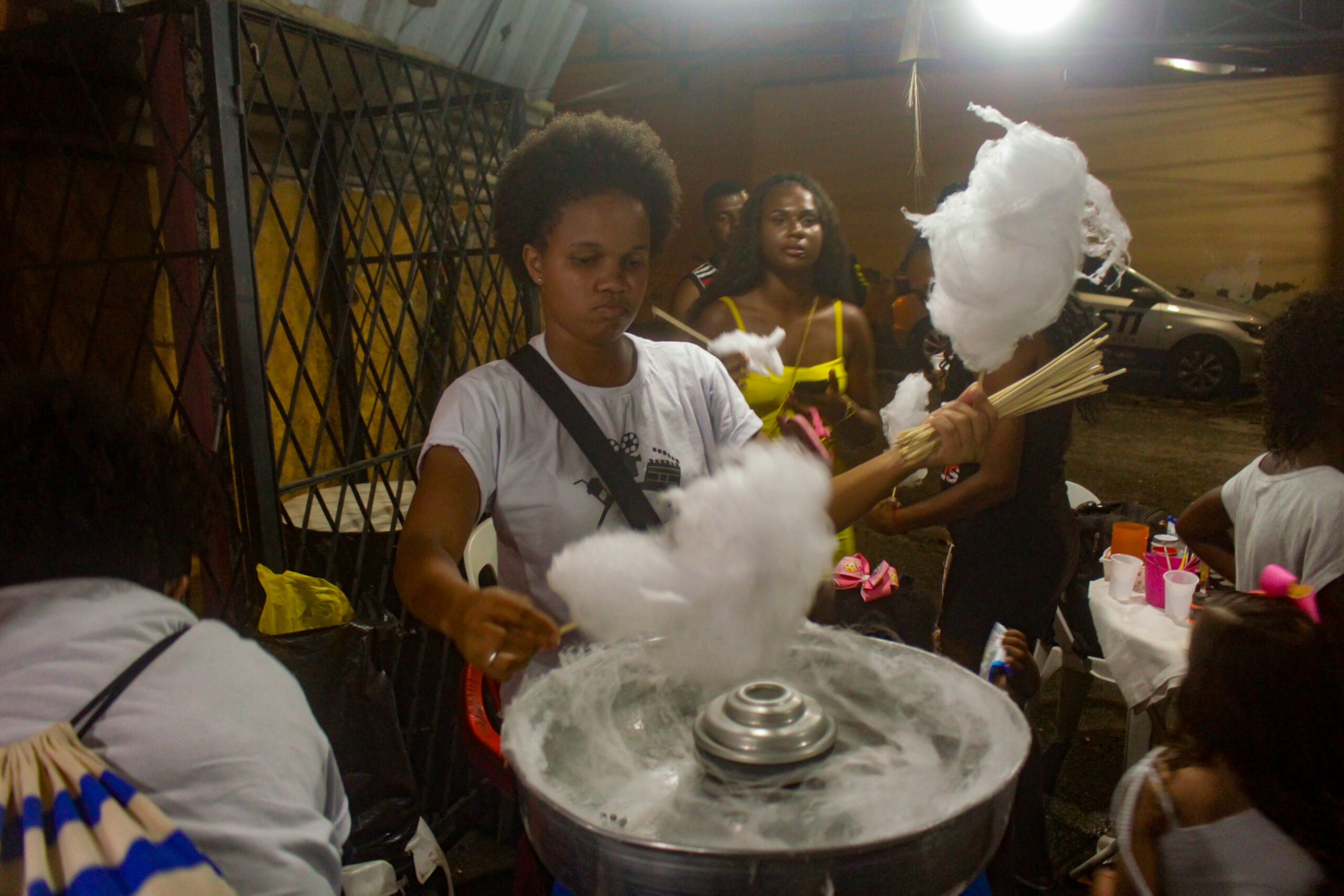
About the author: Vinícius Ribeiro was born and raised in the West Zone of Rio, and currently lives in the favela of Ladeira dos Tabajaras, in the South Zone. Journalist, cinematographer and photographer, he is a member of the Fotoguerrilha Collective. He is director and screenwriter of short films Sobreviver, Dame Candole, Sob o Mesmo Teto and Entregadores, and is currently involved with a project about the Uberization and precarization of labor.
